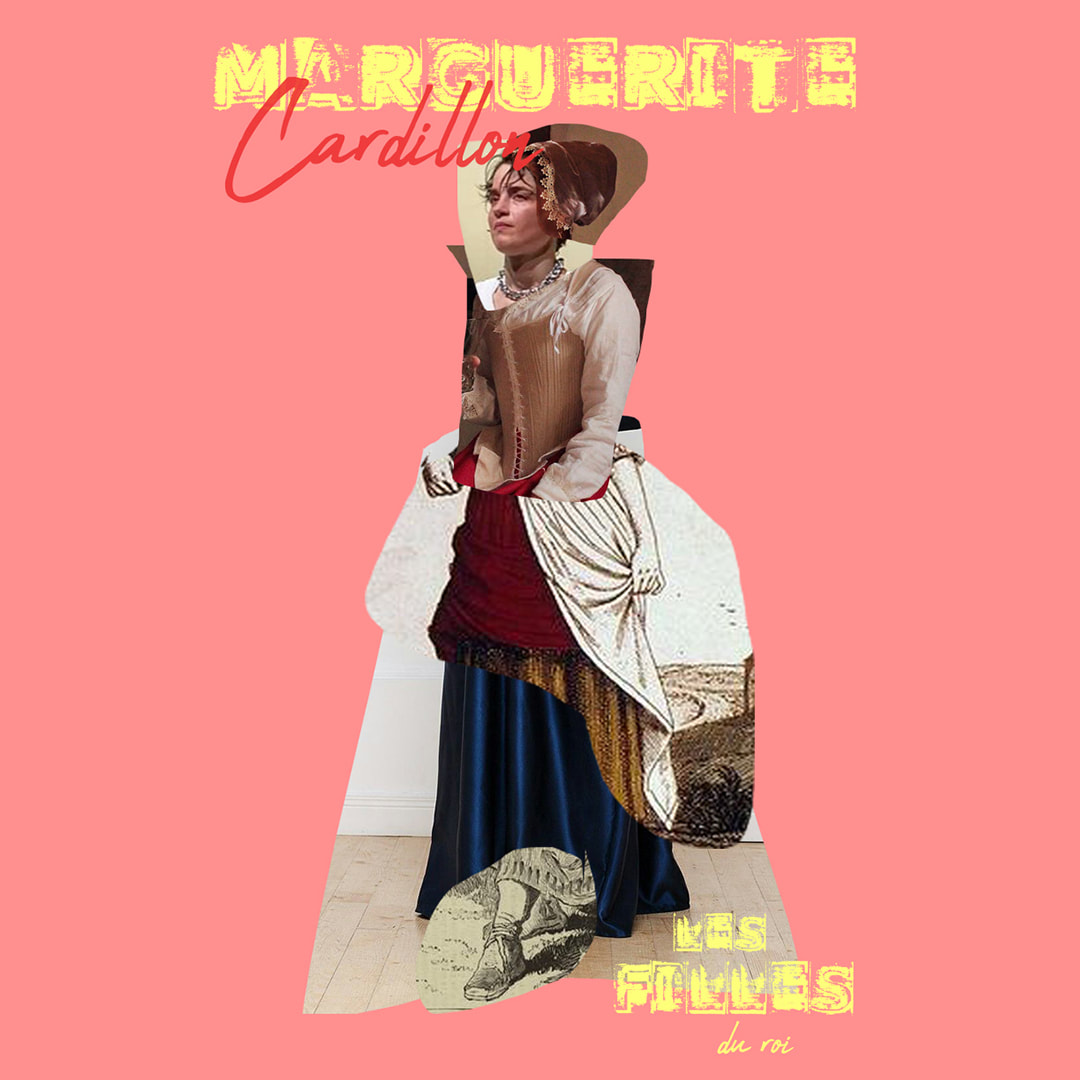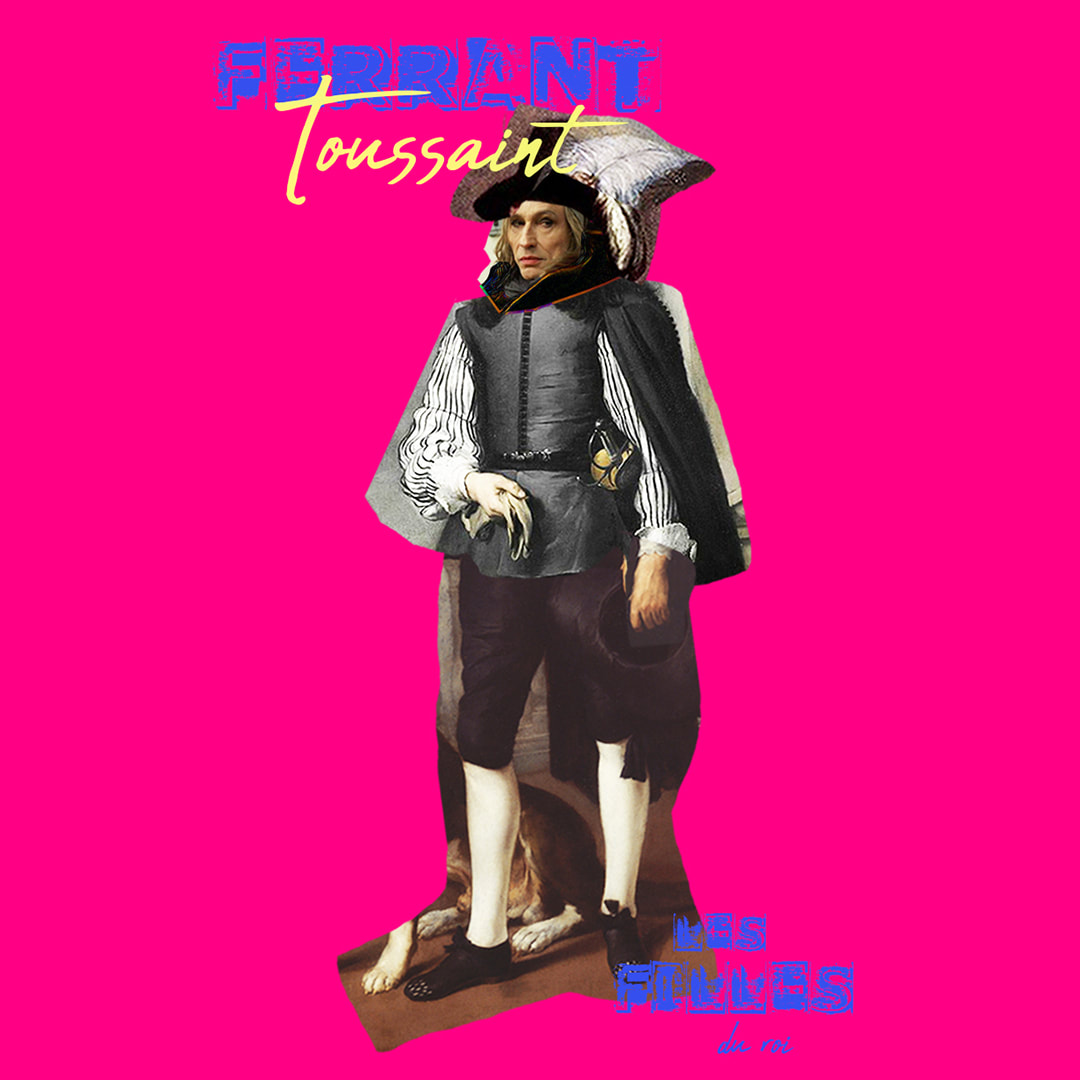8 x 50 minutes drama (development)
1667, the birth of a new civilization along the St. Lawrence, seen through the eyes of one of hundreds of women sent to populate the eastern land of North America, one of the so-called Filles du Roi, a King’s Daughter, Marguerite Cardillon.
1667, the birth of a new civilization along the St. Lawrence, seen through the eyes of one of hundreds of women sent to populate the eastern land of North America, one of the so-called Filles du Roi, a King’s Daughter, Marguerite Cardillon.
Most French-Canadians are descendent from 800 of these women sent to what is now Québec, Trois-Riviéres, Montréal, Hudson's Bay, Nova Scotia, areas of Newfoundland and south to Louisiana. Housewifery isn’t often considered a job of hard labour, but the lives of many of les filles du roi were very difficult. Wives were often pregnant from their early twenties well in to their forties, some giving birth to a dozen children, suffering emotional and physical stress with miscarriages, infant death and the chance of dying themselves during labour.
They were called daughters as King Louis XIV provided the women with passage, a dowry upon marriage and a trousseau containing some clothes, a comb and sewing supplies – cloth, needles, scissors. And a knife.
The women were selected in France and then given the choice to participate in the scheme. If they agreed they were afforded the unique option of choosing who they married when they arrived in New France. A novel concept as most marriages were arranged at the time. Although, is it considered lucky to have a choice between two uncertain fates?
Once les filles du roi arrived at the mainland the ship that carried the women made stops along the St. Lawrence at outposts, ending their voyage in Montréal. Where to depart though? How to know if there were kinder, better men and prospects further along? Most of the women were married within half a year of landing.
But before les filles du roi were chosen, before they went on their journey, before they became wives and mothers, first the women were individuals with histories of their own. In their homeland these women were subject to harsh circumstances where compassion and access to the privileges of wealthier people was rare. Becoming an explorer of sorts was perhaps the best or worst thing that may happen to them.
They were called daughters as King Louis XIV provided the women with passage, a dowry upon marriage and a trousseau containing some clothes, a comb and sewing supplies – cloth, needles, scissors. And a knife.
The women were selected in France and then given the choice to participate in the scheme. If they agreed they were afforded the unique option of choosing who they married when they arrived in New France. A novel concept as most marriages were arranged at the time. Although, is it considered lucky to have a choice between two uncertain fates?
Once les filles du roi arrived at the mainland the ship that carried the women made stops along the St. Lawrence at outposts, ending their voyage in Montréal. Where to depart though? How to know if there were kinder, better men and prospects further along? Most of the women were married within half a year of landing.
But before les filles du roi were chosen, before they went on their journey, before they became wives and mothers, first the women were individuals with histories of their own. In their homeland these women were subject to harsh circumstances where compassion and access to the privileges of wealthier people was rare. Becoming an explorer of sorts was perhaps the best or worst thing that may happen to them.
Meet Marguerite Cardillon & Ferrant Toussaint
Fallen from a well-to-do family in the north east of France, Marguerite is orphaned at aged 9 when she lost her mother Françoise, a midwife, to the heinous accusation of being a werewolf, boiled alive and flayed. Marguerite’s father never remarried and slid into depression. He soon lost all of their wealth through a string of dubious businesses. Marguerite was sold away into child marriage at 14 but when that man was killed in a misguided duel she wasn’t left with much. She was fortunate to have benefactors in the old friends of her father’s. For a time they helped her find work, learn to read from a wealth of books on all manner of topics, write & think for herself. She spent a decade working as a lady’s companion to the wife of a patron of publishing. This connection afforded Marguerite the chance to become published under a pseudonym. But this providential life soon ended when her old friends died during an epidemic. Then during a family autumn stay in Paris her employer discovered that one of her sons has fallen in love with Marguerite and had Marguerite thrown into the Salpêtrière, a sanatorium for destitute women. When Marguerite saw no alternative she took the chance to start a new life in an unknown land as a filles du roi.
When Marguerite’s father reneged on a business deal with Ferrant during Marguerite’s childhood, Ferrant reacted viciously. To get back at Marguerite’s father he accused Marguerite’s mother of being a werewolf. He doubled down when given the option to retract his accusation. Instead he recommended to local clergy, who he had his own business dealings with, that she be tried and if found guilty, killed. Many years later he has become a very successful businessman in New France, mainly managing the trade of furs for a large company. And when you thought Ferrant couldn’t be more evil - he has begun earning money by selling Indigenous slaves to French families.
When Marguerite’s father reneged on a business deal with Ferrant during Marguerite’s childhood, Ferrant reacted viciously. To get back at Marguerite’s father he accused Marguerite’s mother of being a werewolf. He doubled down when given the option to retract his accusation. Instead he recommended to local clergy, who he had his own business dealings with, that she be tried and if found guilty, killed. Many years later he has become a very successful businessman in New France, mainly managing the trade of furs for a large company. And when you thought Ferrant couldn’t be more evil - he has begun earning money by selling Indigenous slaves to French families.


